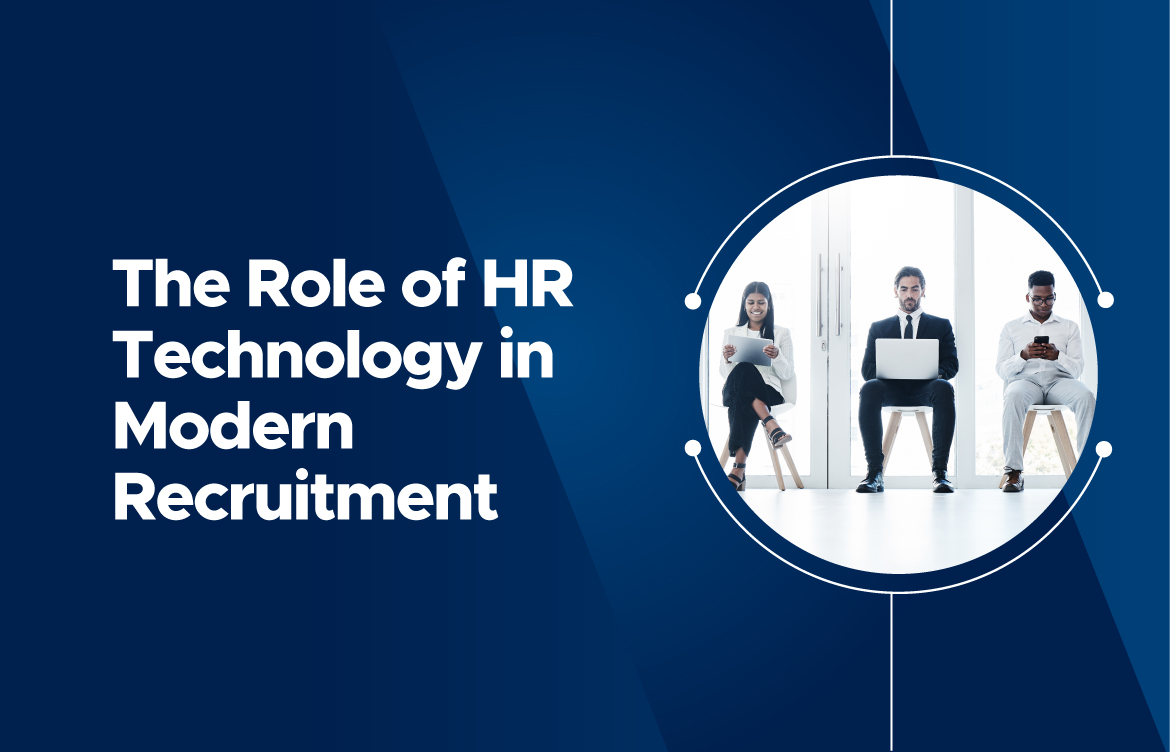The Role of HR Technology in Modern Recruitment: Tools and Platforms to Streamline Your Process.
With the recruiting industry constantly changing, technology has become an essential tool for HR professionals. The days of doing many interviews and manually sorting through piles of resumes are long gone. Modern technology is used by human resource departments to speed up the hiring process and save time.
Technology in Human Resource
HR technology is the use of technology to automate and manage HR activities. It is sometimes referred to as Human Resources Information Systems or Human Capital Management software. Numerous features are included in these systems such as payroll, performance management, etc. HR technology’s main objectives are to accelerate HR procedures and improve the whole employee experience.
The Role of HR Technology in Modern Recruitment
Hiring and retaining top talent is important for businesses to remain successful in the competitive job market. HR technology is important for modern recruiting since it is reshaping hiring practices and offering innovative solutions. The following are some significant ways that HR technology affects hiring in the modern era:
Enhanced Candidate Experience
Organizations can provide candidates with a smooth and customized recruitment process by utilizing recruitment marketing platforms and applicant tracking systems. HR technology ensures that candidates have a seamless experience from job discovery to application submission and raising candidate satisfaction.
Data-Driven Decision-Making
Throughout the hiring process, HR professionals may make well-informed decisions because of the insightful data and insights provided by HR technology. Organizations may identify challenges and optimize hiring strategies by examining recruitment indicators. This includes cost-per-hire and source effectiveness.
Simplified Workflow Automation
Automation is an essential component of modern recruitment allowing HR professionals to automate repetitive procedures while focusing on high-value activities. HR technology automates several parts of the recruitment process by cutting down on human labor and avoiding errors. These tasks include resume screening and offer administration.
Access to a Diverse Talent Pool
Companies can find talent from a variety of industries and geographic locations by using online recruitment portals. HR technology promotes diversity in the workplace by assisting businesses in finding competent applicants. This meets the unique needs of companies through the use of AI-powered algorithms.
Remote Hiring and Onboarding
The growing popularity of remote work has revolutionized how companies find and train new hires. Virtual hiring procedures such as remote interviews and electronic document signatures are made possible by HR technology. Cloud-based onboarding systems make it easier for remote workers to integrate into the company smoothly guaranteeing a smooth transition and a satisfying work experience.
Tools and Platforms to Streamline Your Recruitment Process
After outlining the function of HR technology in modern hiring, let’s examine some of the primary tools and resources that HR professionals can use to optimize the hiring process:
Applicant Tracking Systems
ATS software manages the recruitment process including job postings, applicant screening, interview scheduling, and candidate communication. Sophisticated features including resume processing and reporting analytics are offered by well-known applicant tracking systems like Workday and iCIMS to optimize recruiting operations and boost productivity.
Recruitment Marketing Platforms
By utilizing digital marketing strategies including email campaigns and employer branding campaigns, recruitment marketing platforms assist businesses in attracting and retaining top employees. Focused recruitment campaigns and successful recruitment marketing are all made possible by platforms such as SmashFly and Phenom.
Candidate Relationship Management (CRM) Systems
CRM systems facilitate the management and cultivation of relationships between companies and candidates at every stage of the recruiting process. With the help of these tools, HR managers can keep an all-inclusive candidate database and tailor communications to each candidate to boost engagement and elevate the candidate experience. Popular CRM systems include Yello, Avature, and Bullhorn.
AI-Powered Recruiting Tools
Artificial intelligence is transforming recruiting by automating routine operations and streamlining decision-making. AI-powered recruiting systems evaluate resumes and suggest the best candidates for particular positions using machine learning algorithms. Hiring processes may be streamlined and improved with the use of AI platforms like HireVue, Textio, and Entelo.
Virtual Interviewing Platforms
With the rise of remote work, virtual interviewing platforms have become vital for conducting remote interviews and assessments. These platforms replicate the in-person interview experience online with features including video interviewing and candidate evaluation tools. Platforms for virtual interviews that are well regarded include HireVue, Microsoft Teams, and Zoom.
Onboarding Software
By automating administrative duties, providing individualized onboarding experiences, and offering resources for training and development, onboarding software helps new hires integrate smoothly into the company. These technologies facilitate a seamless transition for remote workers into their new responsibilities and aid firms in properly onboarding them. Software solutions for onboarding that are popular include OnboardIQ, Sapling, and BambooHR.
HR technology is essential to modern recruiting since it helps firms attract top talent, optimize the candidate experience, and streamline recruitment procedures. HR professionals have access to a wide range of tools and platforms to maximize their recruitment efforts, including AI-powered recruitment tools, virtual interviewing platforms, applicant tracking systems, and recruitment marketing platforms. Organizations may stay ahead of the curve and create high-performing teams that propel commercial success in the digital age by embracing HR technology and utilizing creative solutions.



